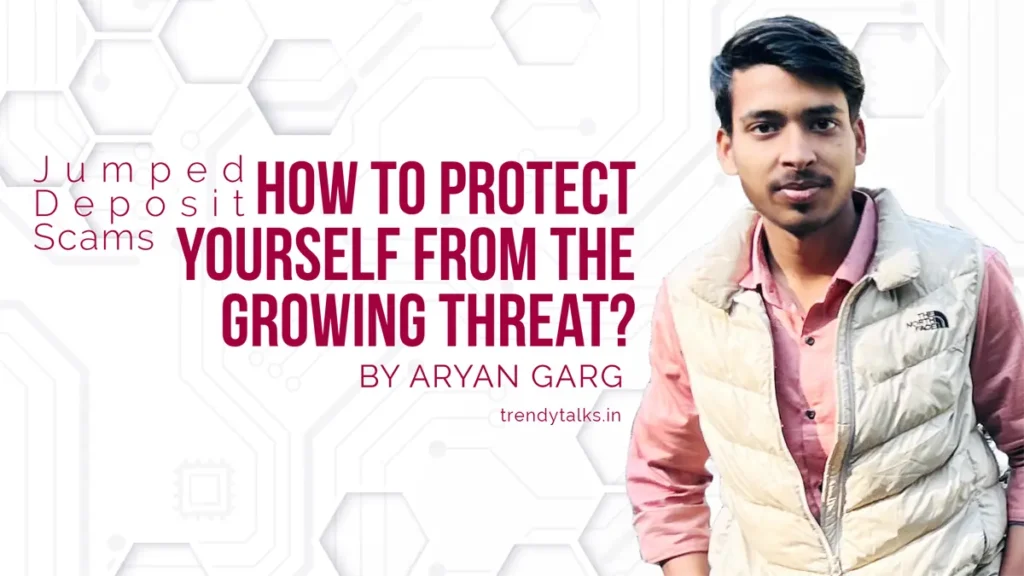
The internet has revolutionized our lives, offering countless conveniences such as communication, entertainment, and financial services. However, with these benefits come significant risks, as scammers exploit vulnerabilities to deceive unsuspecting users. One of the newest and increasingly prevalent threats is the Jumped Deposit Scam, which leverages social engineering tactics to steal money. In this blog, we will explore the workings of this scam, its common forms, warning signs, and ways to protect yourself.
What is a Jumped Deposit Scam?
The Jumped Deposit Scam is a sophisticated fraud that manipulates users into unknowingly authorizing financial transactions. Scammers typically send a small amount of money to their victim’s account to establish a false sense of credibility. They then request the money back under the guise of a mistake. When victims open their banking apps or payment gateways to return the funds, scammers exploit this action to execute unauthorized withdrawals.
Unlike traditional phishing scams, this fraud uses advanced psychological tactics to deceive individuals, making it harder to detect and easier for scammers to succeed.
How the Scam Works?
- Initial Contact
Scammers send a small amount of money to the victim’s bank account. - Building Trust
First of all they follow up with a polite call or message and behave like a victim, apologizing for the “mistake” with an emotional fake story and requesting the money back. - Execution of the Scam
- When the victim opens their payment app or bank account to verify the transaction or initiate a refund, they inadvertently authorize the scammer’s pre-set withdrawal request.
- Scammers cleverly align their request with the victim’s entry of the UPI PIN, resulting in significant funds being transferred out of the victim’s account.
Common Variants of Jumped Deposit Scams
- Lottery Scams
In this type of scam generally victims receive emails or messages claiming they have won a lottery or prize. To claim the reward, they are asked to pay a small “processing fee” upfront.
- Fake Job Offers
Scammers promise high-paying jobs, often abroad, and ask for advance fees for visa processing, travel arrangements, or documentation.
- Investment Scams
Fraudsters lure victims with promises of unrealistically high returns on investments. They often display fake screenshots of earnings to gain trust and request small deposits to “get started.”
- Fake Deposit Notifications
Scammers send false notifications claiming that money has been deposited into the victim’s account. They then share a link to verify the transaction, which redirects to phishing pages or installs malicious software to steal sensitive information.
Why These Scams Work?
The success rate of “Jumped Deposit Scams” lies in the fraudsters' capacity to control human feelings and ways of behaving. Common tactics include:
- Trust-Building: Sending small deposits and polite communication create a sense of credibility.
- Urgency: Scammers stress immediate action to prevent victims from thinking critically.
- Exploitation of Digital Habits: Many users rely on UPI apps and are unaware of the technical vulnerabilities’ scammers exploit.
Warning Signs of Scams
Recognizing these red flags can help you identify potential scams:
- Unrealistic Promises
- Ads or messages offering easy and high earnings with minimal effort.
- Persistent Requests
- Scammers often call or message repeatedly, urging you to act quickly.
- Untraceable Contacts
- Use of fake phone numbers or email addresses that are difficult to verify.
- Urgent Payment Demands
- Immediate payment requests, especially from unknown individuals or businesses.
- Suspicious Communication
- Poorly written messages or emails with spelling and grammatical errors.
Learn How to Protect Yourself from Jumped Deposit Scams?
Taking proactive measures can safeguard you against these scams:
- Delay PIN Entry
- If you receive unexpected money, don’t act early, be calm and avoid entering UPI PIN immediately. Allow at least 15–20 minutes for any fraudulent withdrawal requests to expire.
- Verify Transactions
- Check transaction details directly through your banking app rather than relying on notifications or messages.
- Avoid Suspicious Links
- Never click on unverified links shared via messages or emails. These can lead to phishing pages or malware downloads.
- Limit Sharing Personal Information
- Avoid posting sensitive details online, such as your phone number, email address, or bank information.
- Stay Informed
- Educate yourself and others about emerging scams to remain vigilant.
Steps to Take if You’re a Victim!
If you suspect or know that you have fallen prey to a Jumped Deposit Scam, act quickly:
- File a Complaint
- Don’t hesitate and report the scam to the cybercrime helpline (1930) or file a complaint online at cybercrime.gov.in.
- Notify Local Authorities
- Visit your nearest police station or cybercrime cell to register a formal complaint.
- Contact Your Bank
- Inform your bank immediately to block unauthorized transactions and request a reversal if possible.
Real-Life Example of a Jumped Deposit Scam
Consider this scenario: A victim receives ₹100 in their bank account and a message from a scammer claiming it was sent by mistake. The scammer politely requests the victim to return back the amount with apologizing. When the victim opens their UPI app to transfer the money, they unknowingly authorize a withdrawal of ₹10,000 due to a pre-set request by the scammer.
Such incidents highlight the need for awareness and cautious behavior when handling unexpected transactions.
Final Words
Jumped Deposit Scams exploit trust and small mistakes to carry out significant fraud. By staying vigilant, recognizing warning signs, and following safety measures, you can protect yourself from falling victim. Always verify transactions, avoid sharing sensitive information, and report any suspicious activity immediately.
Remember: Awareness is your strongest defence against digital fraud. Stay safe, stay informed, and help spread the word to protect others from these scams.
Stay safe online and offline—because awareness is your strongest defence!






